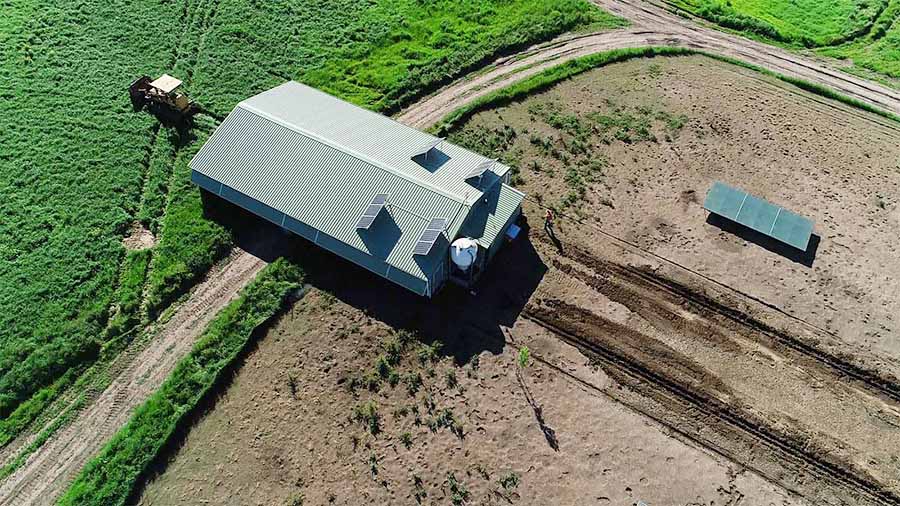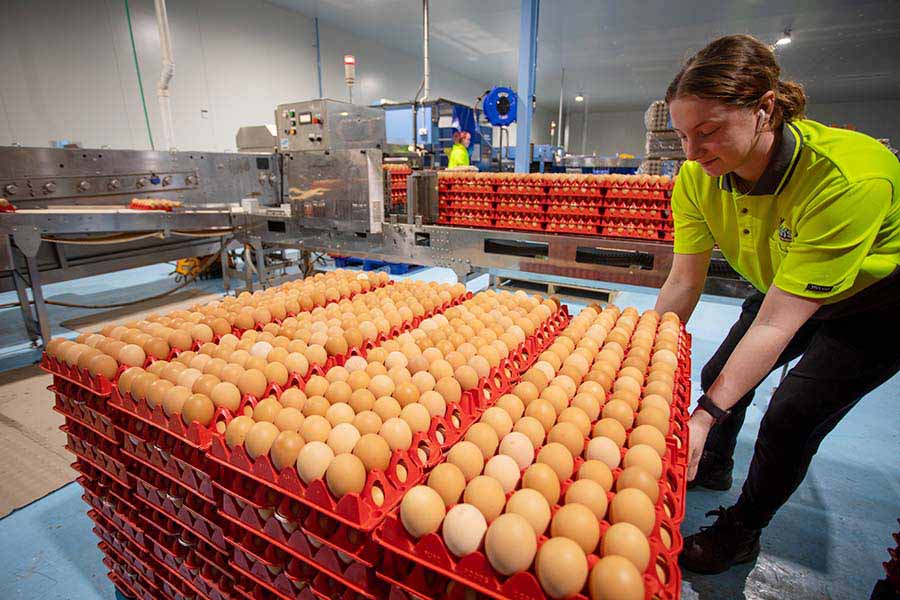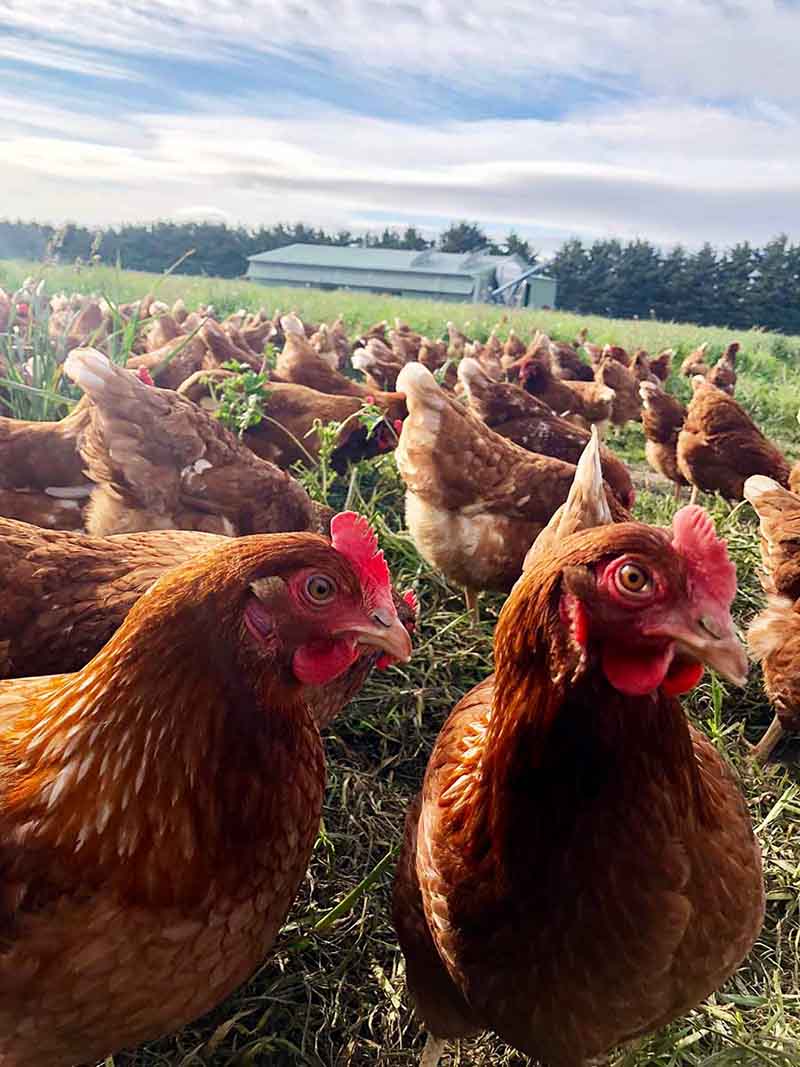Smart mobile sheds
The solution started with the design of smart sheds, which have all the automation of a Sunny Queen or a Pace Farm shed, but give hens access to pasture.
The sheds, which were designed by the family through trial and error, include:
- Sensors that alert when water runs out or there is a blockage;
- Sensors on silos;
- Four cameras in every shed, with playback capabilities;
- Off-grid solar panels, with lithium batteries, that provide all power;
- Plumbed water;
- Doors that open at the same time every day;
- Misters that are temperature controlled to keep sheds at 28℃ during summer;
- Feed that is released every two hours;
- Opening and closing nesting boxes; and,
- Filters and a doser if vitamins and vaccines are required.
Since 2018 the Murrays have been building their own sheds and have settled on a design that is 12 metres by 40 metres, where the chickens roost and lay eggs, and they are encouraged to free range the paddocks.
 The Murrays designed mobile smart sheds which have a litany of automation to keep the hens happy, healthy and productive.
The Murrays designed mobile smart sheds which have a litany of automation to keep the hens happy, healthy and productive.
The sheds are very large, and every four to six months a bulldozer is used to move them to fresh pasture. The older and smaller sheds move even more frequently. With 10 tonnes of birds plus the shed to move, it's quite an exercise. In wet weather, an excavator is sometimes used to tow the bulldozer pulling the shed.
There's a solar system on each shed that powers it on almost every day of the year. The solar system is monitored via an app because it can not fail. Once or twice a year the batteries need to be charged by a generator due to a lack of sunlight to charge its batteries sufficiently.
It's not just lights in the shed that require electricity, with lots of moving parts, including nesting boxes, needing automation to work. Without power the nesting boxes won't open which means the hens are forced to lay their eggs wherever they are. It creates complete and utter chaos and the hens are extremely unhappy.
IT support
Josh's Rainbow Eggs employed its first full-time IT person three years ago and now also has a chief technology officer, who consults to the business.
Josh's Rainbow Eggs employed its first full-time IT person three years ago and now also has a chief technology officer, who consults to the business.
Everything is recorded on mobile forms, from egg collection, to traceability in the grading room and even putting a box on the shelf in Woolworths. When eggs are collected the data is entered into the system and a traffic light alert shows the employee if they're in the red, amber or green. If the egg quantity or weights are down that will flag an issue in the system and the collector will have to stay where they are, so as not to spread potential disease to another shed.
'The sooner you catch something the better,' Tamsyn says. 'It's very stressful and the stakes are really high. We need to know if a shed is sick.'
Different staff members have access to different dashboards, so they can sound the alarm if something is 'mismatched', as Tamsyn calls it.
'I can see the mismatches because I've been doing this for so long. Teaching your team to see those mismatches is a very long process. That's why the technology is so important.'
 Automation and reporting also extends to the packing shed.
Automation and reporting also extends to the packing shed.
Grading shed
Automation and reporting also extends to the packing shed, with smart tools like an auto crack detector, the envy of many small egg producers. Eggs roll under tiny drum sticks that tap on the eggs and microphones can 'hear' if there are any cracks.
Another tool pulls out eggs if they have no yolk or another abnormality, and candling (a light-penetration grading process) is also done by machines.





